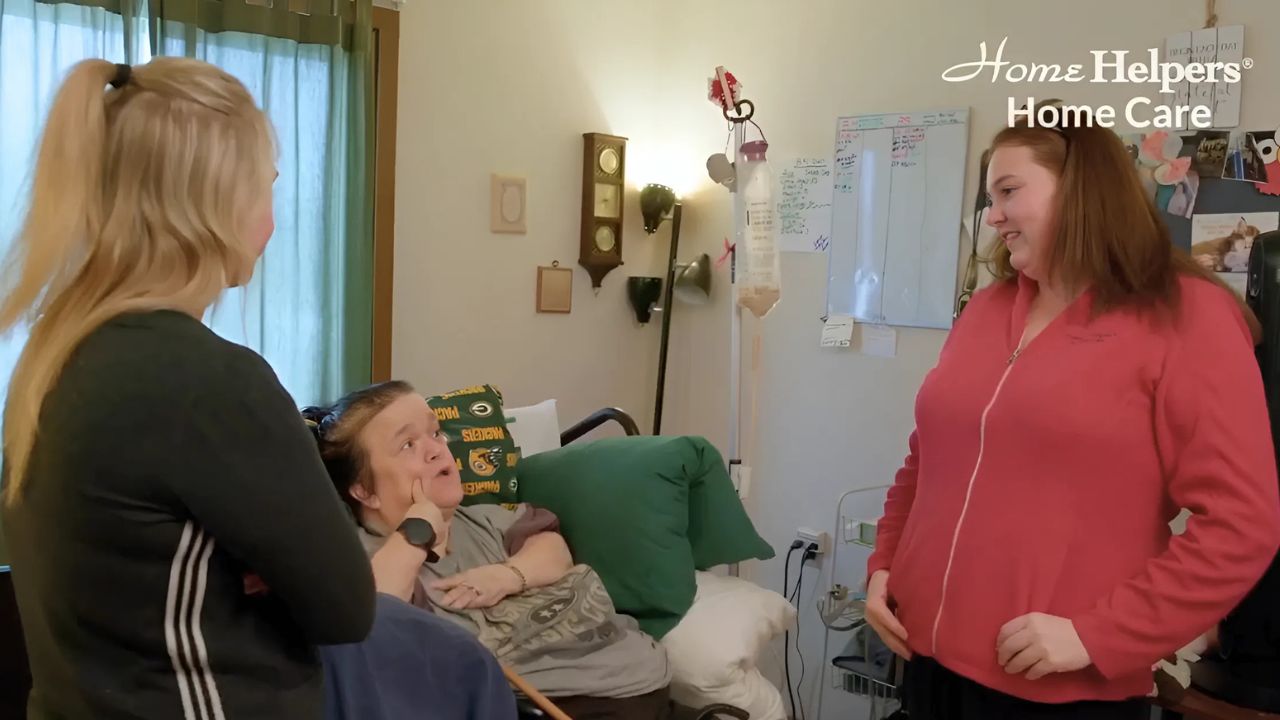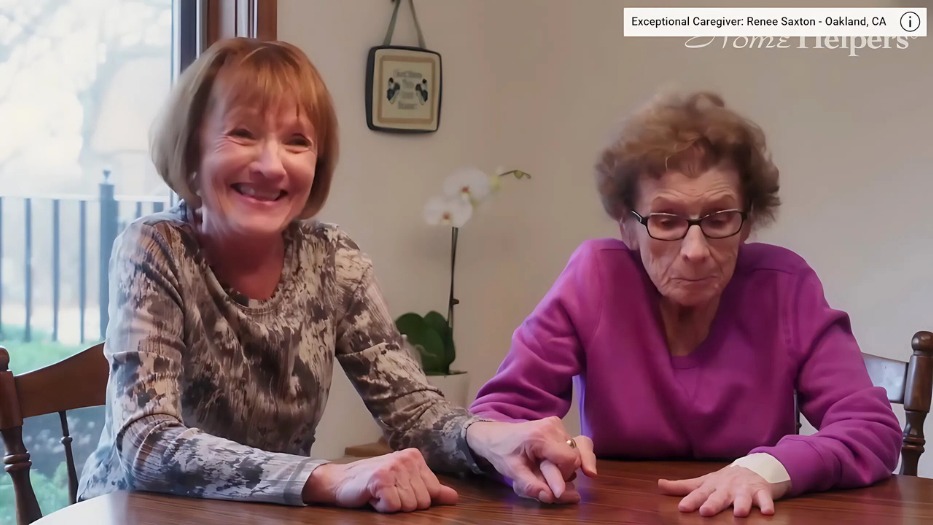Managing Family Dynamics as a Caregiver This Holiday Season

Author: Home Helpers Home Care
The holiday season—twinkling lights, festive meals, and the promise of togetherness. It’s the time of year we look forward to, filled with traditions and memories. But let’s be honest—holidays can also bring stress, especially for family caregivers.
Imagine you’re juggling caregiving, meal planning, and family gatherings. Disagreements about who does what or how to handle things only add to the stress. When you try to meet everyone's expectations for perfection, the joy of the season can quickly fade.
If this sounds familiar, know that you’re not alone. Many caregivers struggle with managing family dynamics, especially when emotions run high during the holidays. This is a season meant for love and connection, but it’s also okay to admit it can be overwhelming.
This guide provides practical tips and strategies to handle challenges and create meaningful moments. It helps you find balance for your senior loved one, family, and yourself.
Let’s make this holiday season not just manageable, but truly memorable for all the right reasons.
Why Family Tensions Spike During the Holidays
The holiday season brings families together but can also increase challenges for family caregivers. The combination of heightened emotions, busy schedules, and differing expectations often creates stress. Here are some common reasons managing family dynamics during the holidays can become difficult:
- Uneven caregiving responsibilities: Resentment often builds when one family member takes on most caregiving responsibilities. This can happen if others don't contribute equally. This imbalance can leave caregivers feeling unsupported.
- Differing opinions: Families often disagree on how to handle caregiving decisions, holiday traditions, or senior care routines. These clashes can escalate during already stressful holiday preparations.
- Past conflicts: Old disagreements and unresolved issues tend to resurface in emotionally charged settings, adding tension to gatherings.
- Burnout from holiday stress: Managing caregiving, holiday planning, and personal responsibilities can leave family caregivers feeling exhausted. This stress makes it harder to handle conflicts patiently.
Recognizing these triggers is the first step in managing family dynamics effectively. Understanding why tensions arise helps caregivers use empathy and proactive strategies to reduce holiday stress for everyone.
Practical Strategies for Family Caregivers
1. Communicate Openly and Proactively
Clear communication helps reduce misunderstandings and sets the stage for collaboration.
- Set expectations early: Share caregiving plans and holiday schedules ahead of time. For example, explain adjustments made to accommodate your senior loved one’s needs.
- Ask for specific help: Avoid vague requests that can create confusion. Instead, assign clear tasks such as buying groceries, setting up decorations, or spending time with the senior.
- Address conflicts beforehand: If disagreements are likely, discuss them privately before the gathering.
- Example: “Grandpa needs to rest in the afternoon, so let’s plan our activities for the morning when he has more energy.”
By fostering open dialogue, you can reduce stress and create a supportive environment.
2. Delegate Tasks to Lighten Your Load
The holidays should be a shared effort, not a solo act.
- Share caregiving duties: Ask siblings or relatives to assist with bathing, meal prep, or medication reminders.
- Create a caregiving schedule: Divide responsibilities among family members to ensure tasks are manageable.
- Hire professional caregivers: In-home care services can provide companionship or assistance with daily activities, allowing you to focus on challenging family dynamics.
- Example: Let one sibling handle decorating while another prepares a meal, giving everyone a role in the celebration.
3. Set Boundaries to Protect Your Well-Being
Boundaries are essential for maintaining emotional balance.
- Limit exposure to negativity: Spend time with supportive family members and avoid difficult relatives when possible.
- Learn to say no: Politely decline tasks or invitations that feel overwhelming.
- Redirect conversations: If a discussion becomes tense, steer it toward a positive or neutral topic.
- Example: “I understand your concerns, but let’s focus on making today special for Grandma.”
4. Focus on Your Senior Loved One
Centering the celebration around your senior loved one can bring the family together.
- Involve them in traditions: Encourage participation in activities like baking cookies, decorating, or storytelling.
- Tailor plans to their needs: Schedule events around their energy levels and preferences.
- Create meaningful moments: Suggest one-on-one time between family members and your senior loved one to foster connection.
- Example: Plan a photo album session where everyone shares memories while organizing pictures with your loved one.
5. Approach Challenging Family Members with Empathy
Empathy can help diffuse tension and build understanding.
- Acknowledge their feelings: Listen to family members who may feel excluded or stressed.
- Example: “I understand this season is hard for you. Let’s work together to make it easier for everyone.”
- Don’t take it personally: Their frustrations often stem from their struggles, not your actions.
- Use empathy as a bridge: Frame responses to show you value their input, even if you disagree.

When Conflicts Escalate
Despite your best efforts, some situations may require outside help:
- Use a mediator: A family therapist or trusted friend can provide a neutral perspective to resolve disputes.
- Take a break: Step away to regroup if emotions run high.
- Involve professional caregivers: They can provide respite care, allowing you to focus on managing family dynamics.
Self-Care Tips for Family Caregivers
Caring for yourself is just as important as caring for others.
- Schedule personal time: Whether it’s a walk, a book, or quiet reflection, moments of peace can rejuvenate you.
- Lean on your network: Talk to friends, join a support group, or consult a counselor.
- Celebrate small victories: Look for positive moments during the holidays, like sharing a laugh or enjoying a meal together. These small joys can help keep the holiday spirit alive.
Finding Joy Despite Challenges
The holidays are a time for love, connection, and creating cherished memories. While managing family dynamics can be challenging, your efforts to support your senior loved one are invaluable.
Remember, it’s not about creating a picture-perfect holiday—it’s about being present for the moments that matter most. By focusing on family connection and practicing self-care, you can make this holiday season meaningful for everyone involved.
How Home Helpers Home Care of Bradenton Can Help
Home Helpers Home Care of Bradenton offers caring support for family caregivers, including respite care and companionship. Our goal is to ease your holiday stress and ensure seniors feel loved and cared for.
From all of us at Home Helpers Home Care of Bradenton, we wish you peace, joy, and love this holiday season. Happy Holidays!
